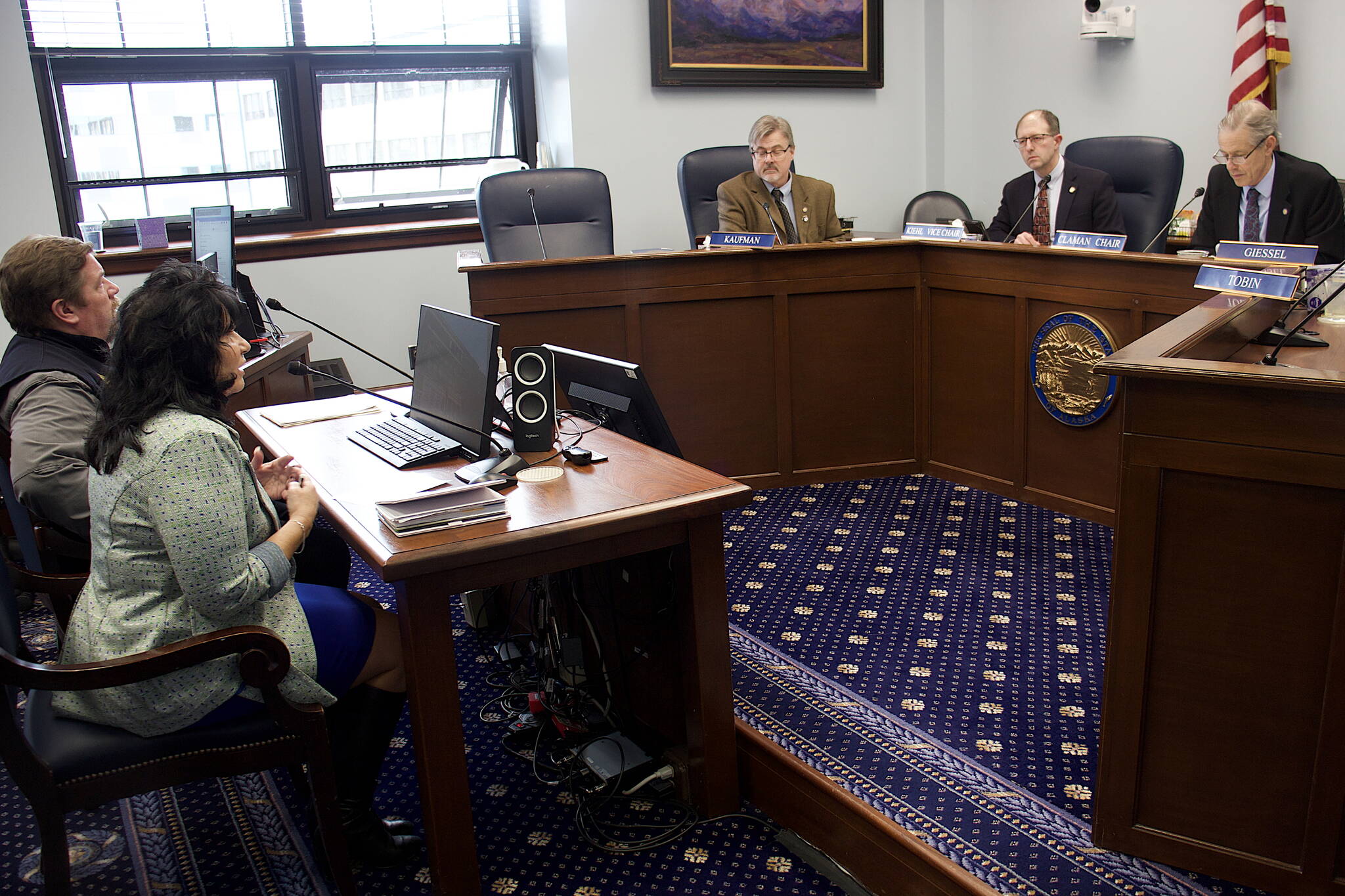A bill removing limits on some gun sales was advanced during a Mother’s Day hearing scheduled on less than a day’s notice by the Senate Judiciary Committee — to the ire of several mothers who called to testify — but changes the committee made to narrow the bill’s scope also drew plenty of furious public comments.
The timing also raised questions about motives behind the sudden movement of the bill sponsored by House Speaker Cathy Tilton, a Wasilla Republican, including whether it might be a trade to also advance a bill by the judiciary committee chair allowing involuntary commitment in psychiatric facilities of certain people that’s stalled in a House committee.
Lawmakers involved in both bills and Sunday’s hearing denied a trade was involved, stating each proposal has enough support to advance on their own merits.
“There’s no trade,” said Sen. Matt Claman, chair of the Senate Judiciary Committee and sponsor of Senate Bill 53 that allows the involuntary commitments. “At the end of the session we all try to move forward.”
Claman’s bill is currently in the House Judiciary Committee and, following a failed House floor vote Friday to have the bill removed from that committee, a member of the House’s Republican-led majority told the Anchorage Daily News “it will get out of that committee, one way or another.” The committee is chaired by Rep. Sarah Vance, a Homer Republican, who was among a few legislators in the audience during Sunday’s hearing on Tilton’s bill. Vance is among the bill’s 19 co-sponsors in the House.
The scrutiny of both bills comes only a few days before the scheduled adjournment of the session on Wednesday, with both House and Senate leaders saying their differences remain so significant on the main order of business — the budget — that a special session appears inevitable.
Tilton’s bill, mirroring similar legislation that has passed in several other states, is largely motivated by the closure of gun shops and related businesses during the COVID-19 pandemic. Legislators and other people in Alaska supporting the bill argue that, in addition to Second Amendment rights, access to firearms and ammunition is a critical need for many people who depend on subsistence hunting to survive.
The bill passed the House 26-12 earlier this month and its advancement Sunday means it can be scheduled for a Senate floor vote. If it passes the Senate, the House will need to concur with Senate changes.
The primary change Sunday modifies language saying firearms retailers can’t be treated differently than other businesses, adding an exemption for “grocery stores, pharmacies, medical facilities, and businesses that provide housing, including rental accommodations, hotels, and motels.” Tilton told the committee she has concerns about the exemptions.
“Part of that has to do with just leading to A) adding more exemptions and B) the fact our Second Amendment right is a constitutional right,” she said.
Despite little advance notice of the bill, more than 20 people called in to testify. Strong opinions were voiced both for and against the bill — as well as the timing of the hearing.
“I find it shameful that the committee would hold a last-minute hearing for this bill, on Mother’s Day, a time that we should be honoring the mothers and mother figures in our lives instead of advancing NRA-backed legislation that could put more lives at risk,” said Rochelle Parker, an Anchorage resident. “Which causes me to question do we in this state love our guns more than we love our mothers and our children? Because so many mothers around the state and around the country are grieving right now, either because they have lost a child to gun violence, or because we have to live with the daily mental weight that comes with the constant threat of gun violence.”
Among those testifying in favor of the bill was Donna Anthony, a former Palmer police officer who is the owner of Point Blank Firearms & Self Defense Training. She said Alaska has fewer than 900 police officers and about 40% of the state does not have professional law enforcement.
“During the time of COVID I don’t think a lot of people understand that we were struggling to keep dispatch centers open in law enforcement,” she said. “We were struggling to have officers on the road during COVID. So when you called 911 during certain emergencies some officers did respond, some did not. So I do support the Second Amendment strongly, that civilians have the right to protect themselves and their families, especially during a disaster.”
• Contact reporter Mark Sabbatini at mark.sabbatini@juneauempire.com.

